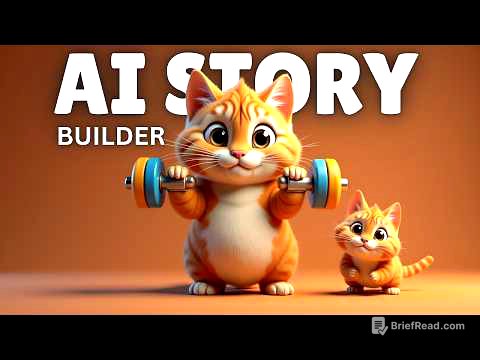TLDR;
This video discusses the concerning trend of lower testosterone levels in young men compared to older generations and explores potential causes and solutions. It emphasizes that while many men engage in habits detrimental to testosterone production, even those dedicated to self-improvement may still struggle with low levels. The video offers practical advice on how to address this issue, including changing one's identity through visualization and action, improving sleep efficiency, and leveraging the placebo effect. It also touches on the importance of raising sons in a way that fosters masculinity and strength.
- Young men today have lower testosterone than older men, a first in history.
- Environmental factors and modern lifestyles contribute to low testosterone, even in those who practice self-improvement.
- Practical solutions include changing identity through visualization, improving sleep efficiency, and using the placebo effect.
- The video stresses the importance of raising sons to be strong and masculine.
Jeffrey / Adonis [0:00]
The video starts by contrasting two archetypes: Jeffrey, who represents a man with low drive, ambition, and sex drive, and Adonis, who embodies masculinity with high muscle mass, low body fat, and a strong libido. Jeffrey struggles with motivation and improving himself, while Adonis is focused and driven due to his healthy testosterone levels. This contrast highlights the difference in how men can feel and function based on their hormonal balance.
Young men have lower testosterone than older men [0:47]
The video addresses the unprecedented issue of young men having lower testosterone levels than older men, which is a reversal of the natural aging process. It suggests that while many young men deserve low testosterone due to unhealthy habits like staying up late, drinking alcohol, watching porn, and not exercising, there are also many men who are dedicated to self-improvement but still struggle with low testosterone. This raises the question of what these men can do to improve their levels.
What you need to do [2:46]
The video reflects on the frustration of searching for solutions to low testosterone and finding only generic advice, such as getting enough sleep and lifting weights, which many men dedicated to self-improvement are already doing. The speaker recalls feeling insecure as a teenager when he related to descriptions of men with low testosterone, and expresses disappointment with the lack of in-depth information and the prevalence of supplement sales in online content about testosterone. He emphasizes the need to understand the root causes of low testosterone, especially for those who are already doing the right things.
Younger Hamza :( [6:11]
The speaker shares personal experiences of feeling more feminine than he should have as a teenager, suspecting that his testosterone was low and estrogen was high. He recalls feeling self-conscious about his body and experiencing issues with sexual performance, despite working out. He attributes these issues to the environmental factors and chemicals in modern society that disrupt hormones, even for those who are health-conscious.
How did I fix low T [10:23]
The speaker reveals that in 2021, his testosterone levels were in the 400s, which doctors deemed within the normal range despite being low for a young man. He criticizes the broad healthy range for testosterone, which includes levels typical of older men, and expresses frustration that young men are often dismissed when seeking help for low testosterone. He also notes that even within online communities focused on testosterone, some individuals argue that levels in the 400s are acceptable.
Change your identity [15:53]
The speaker emphasizes the importance of not letting a low testosterone test result negatively impact one's mindset. He shares that he began visualizing himself with high testosterone and affirming his strength, which he believes contributed to a significant increase in his testosterone levels in 2022. He stresses the importance of changing one's identity by visualizing moments that symbolize having high testosterone and engaging in activities that promote testosterone production, such as spending time in the sun and lifting heavy weights.
Sleep efficiency [17:18]
The video introduces the concept of sleep efficiency, which is the percentage of time spent asleep while in bed. It explains that most people do not sleep for the entire time they are in bed and that a good sleep efficiency is around 80-85%. The speaker recommends extending one's sleeping window to ensure adequate sleep, suggesting that teenagers may need up to 10 hours of sleep per night for optimal growth and development.
Use the placebo effect [19:44]
The speaker discusses the power of the placebo effect and how it can be used to increase testosterone levels. He references a study where participants experienced different hormonal responses based on their beliefs about the healthiness of a shake, even when the shakes were identical. He encourages viewers to adopt the habit of forcing themselves to believe they have high testosterone, even if it feels cringe at first, as this can influence their mindset and potentially their physiology.
Raise your son right [22:02]
The video reflects on the importance of raising sons in a way that affirms their strength and masculinity. It suggests that parents and communities should encourage boys to embrace their natural instincts and behaviors, rather than suppressing them. The speaker expresses hope that viewers will remember this message when they become fathers and raise their sons to be strong, courageous, and helpful men. He concludes by emphasizing that while the current generation may have been negatively impacted by societal trends, they have the knowledge and intelligence to improve their own lives and raise future generations in a more positive way.









